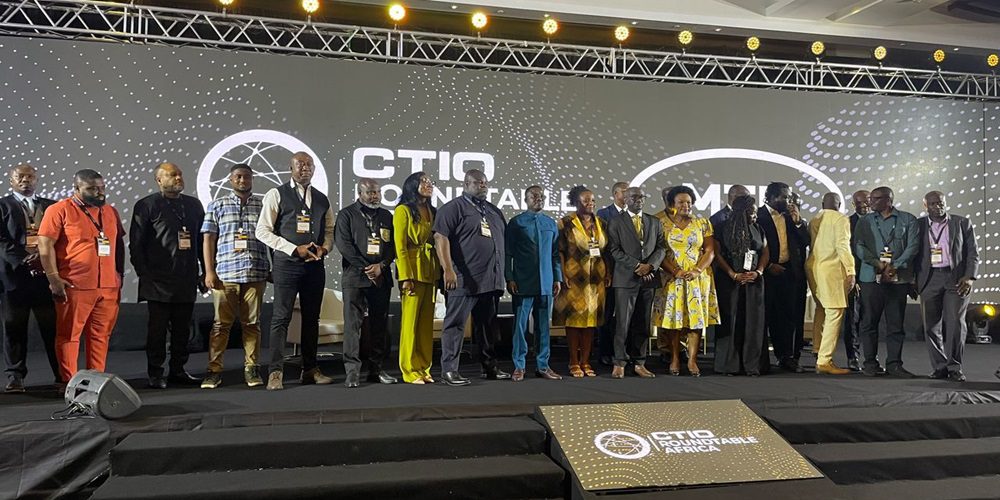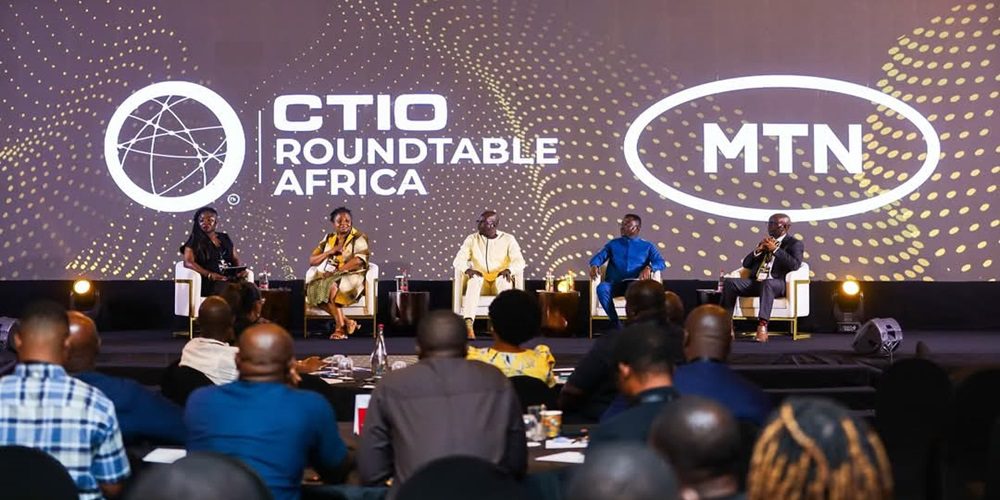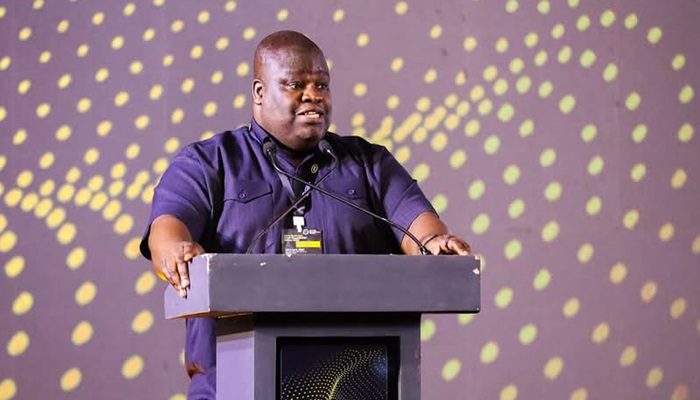Chief Information Officer of MTN Ghana, Bernard Acquah, has called on African business leaders to take proactive steps in shaping artificial intelligence (AI) to reflect the continent’s unique needs, challenges, and opportunities.
He also appealed to them to go beyond adopting AI and instead take ownership of how it evolves across sectors.
“Africa must not just speak AI; Africa must shape AI. AI is not the future—it’s the present competitive edge. And in Africa, it can become a transformational equalizer,” he explained.
He made these remarks at this year’s 2025 MTN Business CTIO Roundtable Africa, under the theme “AI-Driven Innovation: Transforming Business Strategies and Operational Efficiency.”
The forum brought together top executives, technologists, and digital transformation champions from across the continent.

Africa must embed AI in local realities
The Chief Information Officer of MTN Ghana noted that while AI has the potential to contribute an estimated $4.4 trillion to the global economy, according to a 2024 McKinsey report, this value would not be equitably distributed.
According to him, it would concentrate in regions and among companies that embed AI into their strategies, structures, and local realities.
“We are at a critical moment. The businesses that lead Africa’s digital transformation must ensure that AI systems are built on localized data, tailored to the African context, and serve inclusive, ethical, and sustainable goals,” he stated.
Human-centered AI agenda for Africa
Bernard Acquah stressed that Africa’s greatest advantage in the AI revolution is its youthful population.
With over 375 million young Africans expected to enter the workforce by 2030, he urged leaders to invest in digital education, AI upskilling, and innovation hubs that can empower a new generation of African AI builders.
“The continent’s human capital is its most powerful AI resource. AI isn’t just about automation—it’s a pathway to entrepreneurship, job creation, and solving long-standing development issues,” he added.
He pointed to initiatives like Data Science Nigeria and digital tools powering startups in logistics and fintech as examples of how AI is already catalyzing African ingenuity.

AI for impact, not just infrastructure
Throughout his address, Acquah reiterated that AI must not be treated as a purely technical or IT function, but as a strategic tool for business growth and societal transformation.
He challenged organizations to rethink their approaches to artificial intelligence by integrating it into their core business strategies rather than limiting its use to IT departments.
According to him, AI should not be treated as a side tool, but rather as a central part of how businesses plan and operate.
He also emphasized the importance of focusing on low-cost, high-impact applications that directly address real needs across the African continent.
“By targeting practical problems, organizations can create solutions that are both meaningful and scalable,” he said.

Prioritising data quality and ethical AI
Mr Acquah further urged companies to leverage AI to eliminate inefficiencies, empower teams, and completely reimagine how workflows are designed.
He noted that AI has the potential to transform organizational processes, making them more efficient and dynamic.
He also stressed the need to prioritize clean, reliable data and ensure that AI algorithms are designed responsibly.
Ethical considerations and data quality, he explained, must be at the heart of any AI deployment to ensure trust, transparency, and long-term success.
Mr Acquah also warned against blind imitation of global models, stressing the importance of building African solutions for African problems.
“If we copy-paste AI tools without context, we risk reinforcing inequalities and missing the real opportunities. But if we shape AI to our environment, we can leapfrog limitations and lead global innovation from the South,” he said.
Leaders who use AI will win
He indicated that the real challenge isn’t whether to adopt AI, but how effectively it is used.
“AI will not replace leaders,” he stated. “But a leader who uses AI will replace those who don’t. It’s not just about adopting AI—it’s about mastering it, shaping it, and using it to transform Africa’s future,” he added.
MTN Ghana’s commitment to digital inclusion
Chief Enterprise Business Officer of MTN Ghana, Angela Mensah-Poku, noted MTN’s commitment to digital inclusion, especially for young people and underserved communities.
“Through programmes such as Coursera partnerships and ongoing digital literacy training, MTN Ghana aims to equip the next generation with skills in AI, digital marketing, and emerging technologies,” she disclosed.
She added that AI should not be seen as intimidating or out of reach.
“Don’t be afraid when you hear ‘AI.’ You’re already using it on social media. Once you understand your customers and have a phone with data, the world is your marketplace. We will hold your hand—small, small, small—until you become the expert,” she assured.
By CHRISTABEL OBOSHIE ANNAN, Accra
- Valeria, the amputee giving 1,000 other amputees new life - 25 April 2025
- Moses Baiden calls for unified African tech strategy - 25 April 2025
- Govt will settle debt owed Zoomlion-MPs - 25 April 2025




